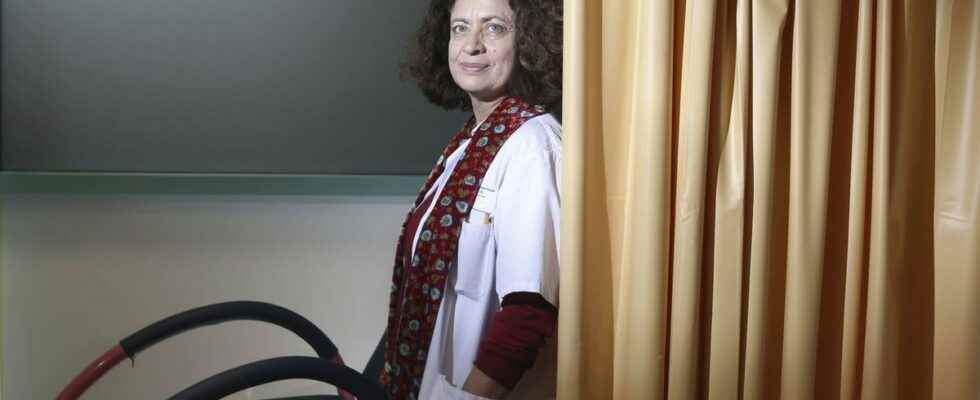Published ,
Reading 3 mins.
Doctor, founder of the Maison des Femmes de Saint-Denis, Ghada Hatem is an activist committed to the cause of women. On this day of March 8, she shares her point of view on the condition of the latter in France and the battles that still have to be fought.
Doctissimo: On the occasion of March 8, what do you think are the essential battles to be waged for women’s rights?
Ghada Hatem: There are several of them. Anything related to women’s health, for starters. Cardiovascular health, for example, which we know is less well taken care of for infarctions, because the form is atypical in it and often detected late. The improvement of clinical studies currently carried out, which mainly include men, when we know that the female body works differently. Perinatality is also still an important subject these days and safety around childbirth. We live in a time when childbirth is a very medicalized moment and paradoxically, women feel mistreated, neglected. There is a loss on the human side, there is a lack of intra-family transmission, of support… And of course the subject of sexual violence against women, the ravages of pornography among young people, the right to dispose of one’s body among young girls … There is still a lot of work!
Does the recent extension of the right to abortion contribute to these advances?
Ghada Hatem: Going from 12 to 14 weeks may not seem like much, but it’s actually a big step forward. We had such a feeling that it would never change, that it would stay like that, that it’s a step forward. We broke a lock. We may think this is a bad thing, but we must not hinder these women in their right. Access to abortion at 14 weeks must be facilitated, there must be more expert centers in the field
Do you have the feeling that with the liberation of speech with Metoo and the taking into account of more real stereotypes with the younger generations, this fight for women’s rights has progressed?
Ghada Hatem: It really made things happen, speech was freed up, women can express themselves more easily. But speaking is not everything. We need support structures for these women. We’ve come halfway. It is now necessary to train police officers to collect complaints, specialized magistrates… We lack the financial means for this.
These fights are at the heart of your action at the women’s house. Can you tell us about it?
Ghada Hatem: We try to be there when these women speak, and when they have spoken, we come to their aid to meet their needs, whether concerning their mental or physical health, filing a complaint, finding a lawyer … We intervene on all levels. We will soon, by this summer I think, open a permanent office, open 24 hours a day to collect complaints from rape victims. It will be a welcome for victims of rape and sexual violence, who will be able to file a complaint and a nurse will be able to collect and store evidence.
You pay particular attention to female victims of excision. How can you help them?
Ghada Hatem: Women victims of excision find psycho-educational support in our structure, which involves support groups, workshops… We also help them with their asylum application. And finally, we try to understand their need for reconstructive surgery, if they express the wish. And if necessary, we are three surgeons to offer them surgical reconstruction.
What are the objectives of the Maison des femmes for this year?
Ghada Hatem: I am currently looking for a hotel to rent to accommodate the 35 young girls aged 18 to 25 who are hosted by the Maison des femmes. These are young girls without children, who are there for social and educational support, so that they can train and take control of their lives. The other major project is to continue to open Women’s Houses throughout France. We are supporting this project through our collective, Re#start, and we aim to open ten women’s centers this year, thanks to funding from around ten sponsors.
These fights go beyond the establishment in Seine-Saint-Denis. Can you tell us about it?
Ghada Hatem: We want to open other Women’s Houses across the country because we need this kind of structure. The Maison des femmes de Saint-Denis will be there to support these various projects and allow mutual assistance between the teams, in particular for the management of abortions over this new 14-week period, for example. And as I usually say, these are not feminist fights, but rather a societal fight, for all of us!
